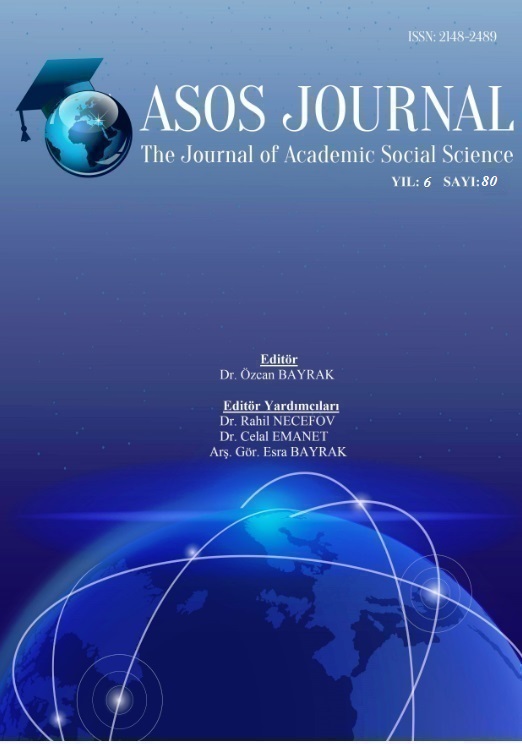Author :
Abstract
Bu çalışma, 2014-2015 yılında Eskişehir İli Tepebaşı İlçesi’ne bağlı Sosyal Yardımlaşma ve Dayanışma Vakfı’na başvuruda bulunan 40 kadın başvuru sahibi ile bir doktora tezi çerçevesinde gerçekleştirilen bir araştırma kapsamında elde edilen verilere dayanmaktadır. Araştırmanın evreni, Sosyal Yardımlaşma ve Dayanışma Vakıflarına (SYDV) başvuruda bulunan yoksul kimselerdir. Katılımcıların deneyimlerine odaklanması nedeniyle nitel bir yöntem benimsenerek yapılmış olan bu çalışmada derinlemesine görüşme tekniği kullanılarak veri toplanmıştır. Ses kayıt cihazıyla kayıt altına alınan veriler betimsel ve sistematik olarak analiz edilmiştir. Bu çalışmada amaç, yoksul başvuru sahiplerinin sosyal yardım sürecine ilişkin deneyim ve gözlemlerinden yola çıkarak yoksulların gözünden devlet ile olan ilişkilerini ve toplumsal yaşam alanı deneyimlerini anlamak ve değerlendirmektir. Katılımcıların deneyimleri, yoksul kimselerin duygu dünyalarına “utanç, acizlik ve tedirginlik” hislerinin damga vurduğunu ortaya koymaktadır. Katılımcıların toplumsal yaşam alanı deneyimleri, sosyal dışlanma ve rekabet duygularının, kamusal alan deneyimleri ise “madunluk” hissinin bu kimselerin dünyasında başat rol oynadığını ortaya koymaktadır.
Keywords
Abstract
This study is based on data obtained within the scope of a research carried out in the framework of a doctorate thesis with 40 women applicants who applied to the Social Assistance and Solidarity Foundation of Eskişehir Province of Tepebaşı District in 2014-2015. The universe of the research is the poor who apply to the Social Assistance and Solidarity Foundations (SYDV). Data were gathered using in-depth interview techniques in this study, which was made by adopting a qualitative method because of its focus on participants' experiences. The data recorded with the voice recorder were analyzed descriptively and systematically. The aim of this study is to understand and evaluate the experiences of poor applicants with the state in relation to the state and the experiences of the social habitat through the experiences and observations of the social assistance process. The experiences of the participants reveal that the emotional worlds of the impoverished persons are marked by the feelings of "shame, helplessness and uneasiness". Participants' experience of social life experiences, social exclusion and competition feelings, and public experience shows that the "submissive" feeling plays a dominant role in the world of these individuals.





